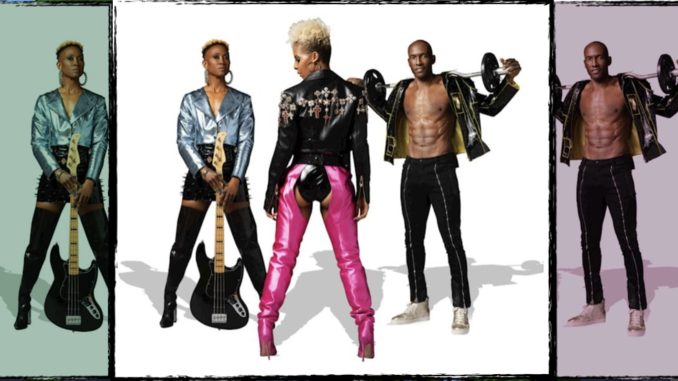
The “ride of a lifetime” has evolved into an outright mind-blowing rollercoaster in recent times for Bob Iger and his beloved Walt Disney Company. After wielding a powerhouse of a media, entertainment, and consumer experience company for nearly 15 years, the former Chief Executive had to come out of retirement to save the floundering legacy studio from the impact of a global pandemic and some pretty huge missteps that not only disheartened fans of the studio’s intellectual property, but also demoralized many of its longtime employees.
Ironically, the Ithaca College graduate always has his book, The Ride of a Lifetime: Lessons Learned from 15 Years as CEO of the Walt Disney Company, to refer to in a time of industry disruption, proxy fights, and economic uncertainty.
Here are seven lessons extracted from the bestseller:
7. It’s Not All About The Benjamins

“You have to look past whatever the commercial losses are and be guided, again, by the simple rule that there’s nothing more important than the quality and integrity of your people and your product. Everything depends on upholding that principle.”
In the world of shareholders, board of directors, and competitors, it’s easy to lose sight of the original vision of a venture. Even in life, we deal with having to please our own personal shareholders, whether it be family or within the workplace, while simultaneously competing with the continuous influx of college graduates, and qualified and economically appeasing candidates vying for the same provisions. However, at the heart of every man and woman’s mission should be a greater why. Iger suggests accounting for and being consistent with your core values over the bottom-line can be more beneficial for the longterm.
6. Be Solution-Oriented
“It’s okay to come to me with problems, but also offer possible solutions.”
The climate of society, at least as it is portrayed on social media, is heavily absorbed in the culture of criticism. That’s not so much a problem, criticism utilized in its most elevated form can work as a transformational, honing tool making the recipient of the criticism better. It’s when the criticism becomes complaining with no scale for solutions that it becomes a toxic problem nipping the mental consciousness of society. Iger plainly offers an alternative to the endless tunnel of focusing on problems… If you’re the first to point out a problem, also be the first to point out a solution.
5. Follow Your Gut Instinct

“Something inside me didn’t feel right. Echoing in my head was something Tom Murphy had said to me years earlier: ‘If something doesn’t feel right to you, then it’s probably not right for you.'”
How many times have we escalated our investment into something despite an onslaught of very bright red flags waving in our faces? There is a reason why human beings have intuition and discernment. If your intuition is a little rusty from not being in character-building situations in a while, then there’s no hope for you. Just kidding. One test that always works is observation. Don’t make a move until you gather all the information needed to make an informed decision. Besides, you can always tell a tree by its fruit.
4. Don’t Make Promises You Can’t Keep
“The worst thing you can do when entering into a negotiation is to suggest or promise something because you know the other person wants to hear it, only to have to reverse course later. You have to be clear about where you stand from the beginning.”
This is not a hard lesson to learn. Some in business recommend underpromising and overdelivering. Iger, on the other hand, aligns with the ideology of not promising anything at all in the first place. Instead, deliver on what you specialize in and never inflate your abilities if you truly aren’t capable of living up to that standard.
RELATED ARTICLE: 7 More Empowering Lessons From ‘I Am Debra Lee,’ A Powerful Memoir From Former BET CEO Debra Lee (Part II)
3. Keep A Solid Circle
“Surround yourself with people who are good in addition to being good at what they do. You can’t always predict who will have ethical lapses or reveal a side of themselves you never suspected was there. In the worst cases, you will have to deal with acts that reflect badly on the company and demand censure. That’s an unavoidable part of the job, but you have to demand honesty and integrity from everyone, and when there’s a lapse you have to deal with it immediately.”
Who you choose as your life partner or partner in business can make or break you. Who you choose as friends can propel you forward or hold you back. The inner circle is as important as the many chambers of the heart, so protect it by only giving access to people who display values that won’t jeopardize your life’s work. It’s equally important for your circle to consist of people who are open to honest communication without the constant worry of burning a bridge because you were truthful.
Iger writes about Steve Jobs, “Our connection was much more than a business relationship. We enjoyed each other’s company immensely, and we felt we could say anything to each other, that our friendship was strong enough that it was never threatened by candor… He could criticize me, and I could disagree, and neither of us took it too personally.”
2. Ignore The Distractions
“The biggest task before me was to continue to make the best case I could make for myself and ignore all of the distractions that I couldn’t control… As much as this process was a test of my ideas, it was also a test of my temperament, and I couldn’t let the negativity being expressed by people who knew little about me affect the way I felt about myself.”
The fact that not even a CEO of a multi-billion dollar company can escape the pesky tests of life, such as people who thrive off of irritating and nagging others for their own cruel intentions, is a helpful revelation for those who aspire to one day operate a business or take on a challenge out of their comfort zone. The role of leadership or simply the road of upward mobility doesn’t require perfection. We’re all human. The best thing one can do is rise above the distractions and make sure you’re not a distraction to others.
1. Train Yourself To Be A Good Leader

Finally, there are key elements Iger shares to being a great leader. Here are a few:
“Managing your own time and respecting others’ time is one of the most vital things to do as a manager.”
“Of all the lessons I learned in that first year running prime time, the need to be comfortable with failure was the most profound. Not with lack of effort but with unavoidable truth that if you want innovation… you need to give permission to fail.”
“When the two people at the top of a company have a dysfunctional relationship, there’s no way that the rest of the company beneath them can be functional.”
“If you don’t do the work, the people around you detect that right away and their respect for you disappears. You have to be attentive. You often have to sit through meetings that, if given the choice, you might choose not to sit through. You have to learn and absorb. You have to hear out other people’s problems and help find solutions. It’s all part of being a great manager.”
Bob Iger’s The Ride of a Lifetime: Lessons Learned from 15 Years as CEO of the Walt Disney Company is available at Random House Group.




